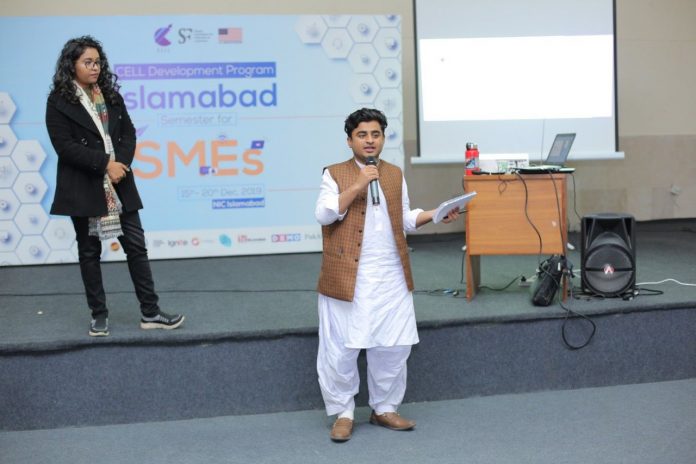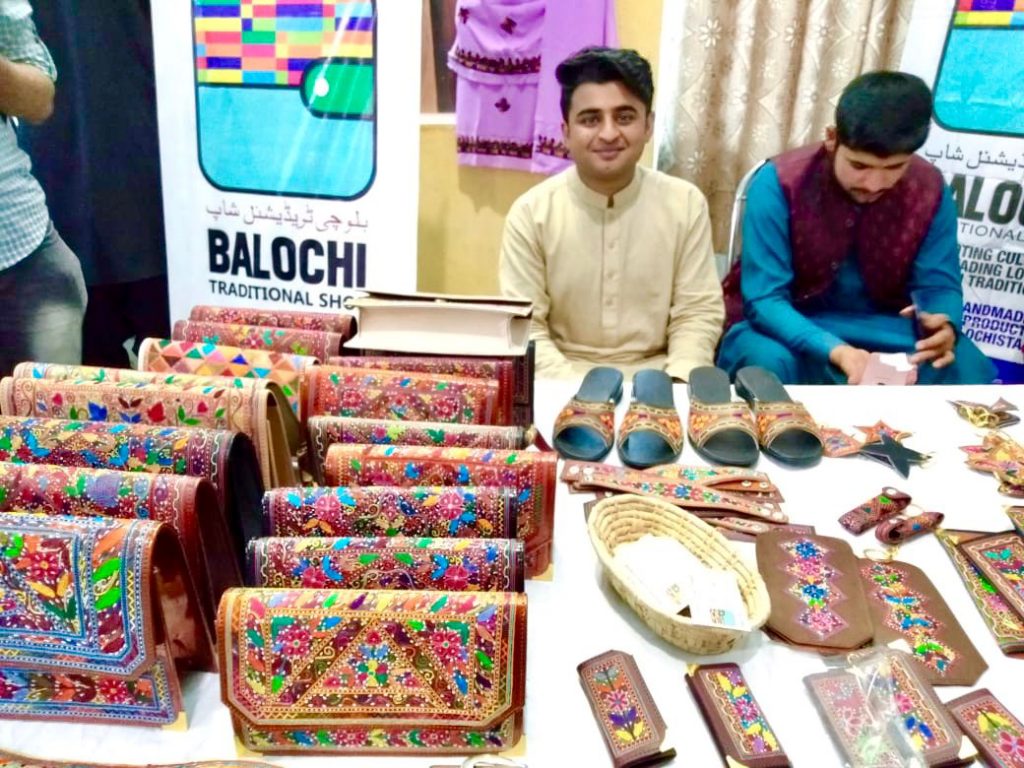
The traditional embroidery of Balochistan is a centuries-old craft, that tribal women learn at an early age and hand down to the next generation with love, precision, and care. It is a labor-intensive art as each piece of embroidery sometimes needs days-long work by diligent craftswomen.
Despite their hard work the women engaged in creating embroidered fabrics and other items receive very low prices for their handmade artifacts as they have limited access to markets. This craft was also on the decline due to changing social patterns and urbanization.
However, a young man from a backward area of the Sibi district decided to act as a bridge between the craftswomen and the market and established a platform that not only changed his life and helped in creating opportunities for the local artisans but also introduced the Balochi handicraft to the world.
Imran Khan Hara is the creator and chief executive officer (CEO) of the Balochi Traditional Shop (BTS) – the first online shop of its kind showcasing handicrafts from the province.

Hara became interested in traditional embroidery when he came across an embroidered wallet in the possession of one of his friends from Tehsil Lehri. A man of determination, he finally reached the cottage industries where such handicrafts are made.
Hara, who now also runs a stall of handicraft items at Quetta’s upscale Serena Hotel, said he first created a page – the Balochi Traditional Shop – on Facebook to market and sell the handicraft products.
“My business started to grow and in May 2016 the sales rose to Rs100,000 per month. At first, my parents thought that I was doing some fraud but they later learned to understand my business,” he said.
He said the BTS was created with the vision to introduce and promote the unique handicraft of rural Balochistan to the modern world. He said the BTS collects the best products from craftswomen and sells them online to clients all over the world.
“The Balochi handicrafts are unique but earlier they were not easily available. People had to come to Balochistan or Quetta to buy them. However, the BTS has made it possible for the customers to buy their favorite handicraft at home.”

He said the purpose of establishing the business was also to help artisans of Balochistan and to empower women of rural areas who are not allowed to work outside their homes.
“The artisans had no access to modern technology. They lacked training and had no proper knowledge about the market demands. The BTS provided a platform to these women.
“The craftswomen are now more financially independent and their living standards have improved. The BTS also educates craftsmen to make customized products,” he added.

He said the BTS is a successful example of independent entrepreneurship and has set an example for many who have followed in its footsteps and started online marketing of traditional handicrafts as well as various products such as homemade cakes, food, shoes, and various other local products.
Hara said more than 150 female part-timers from Sibi districts are working with him for this online shop. “Each of the workers earns around Rs20,000 per month from leather embroidery. They also make extra earnings by embroidering dresses,” he said.
“I want to start a company where youngsters may learn the art of embroidery and earn for their families. I want to spread the colorful stuff of Balochistan globally,” he said.
Imran Khan Hara, who hails from the backward Allahabad area of Sibbi, belongs to a poor family. He dropped out of school as he was more interested in learning about practical skills and started supporting his family at a young age by selling biryani; running a shop and working in medical stores.
He came to Quetta in his teens and after getting some training started working in different dispensaries of the city. Later, he decided to complete his education and, returning to Sibbi, he did intermediate from a government college.
He later obtained a BSc in geography degree from the University of Balochistan. Hara’s brother helped him in learning English. Hara later cultivated a knack for learning languages and now he can speak eight different languages with considerable fluency.



